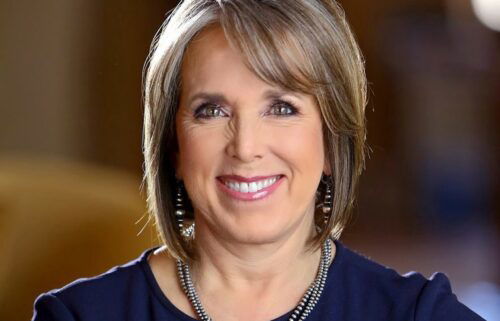Home-school students ask state of Nebraska to let them join public school activities
Click here for updates on this story
LINCOLN, Nebraska (Lincoln Journal Star) — It took some convincing, but Micah Shade’s parents finally let him play Hastings Midget Football last year.
The home-schooled sixth grader said playing football alongside other boys his age “was one of the best experiences” of his life, lamenting that under the current laws, he may not get to continue.
“For the other kids on my team, they can go on to play football at their middle schools and high schools,” Shade told the Legislature’s Education Committee on Monday. “For me, I thought this was my only year to play.”
A bill (LB210) from Sen. Dave Murman of Glenvil would allow home-school students like Shade to participate in extracurricular activities at their local public school.
Murman’s bill would require school boards to set policies affording the same access to athletics, music, journalism and speech as public school students, without requiring home-school students to earn any credit at the school.
Under current guidelines, students must enroll in at least 10 credit hours — or two classes per day — to participate in extracurricular activities.
Murman said the bill would open doors for a growing number of home-school students in Nebraska, which has risen from about 5,600 in 2008-19 to more than 8,200 in 2018-19, according to the most recent data from the Nebraska Department of Education.
“All students, regardless of school choice, should have this opportunity without unnecessary requirement,” Murman said. “A person’s lawful method of education should not preclude any student from involvement in extracurricular activities within the school district in which they reside and pay taxes.”
Stephanie Shade — Micah’s mother and teacher — said she and her husband made the decision to educate their children at home in 2009 in order to best meet their needs, and since then have paid tens of thousands of dollars in property taxes.
“I’m not complaining,” the former public school teacher said, but she added Micah should have access to the same activities as other students “without strings attached.”
“I don’t believe it’s too much to ask for my son to play football at our local middle school without additional course requirements,” she said.
School districts and activities organizations said Murman’s bill undercuts the foundation of school activities as enriching the academic mission and opens the door for potential abuses to happen.
Jay Bellar, executive director of the Nebraska Schools Activities Association, said the organization’s member schools set minimum eligibility requirements for athletics and activities in order to make sure that academics come first.
The idea is to make extracurricular activities a hook to keep students engaged in school, and to give schools the ability to set higher benchmarks for students to meet.
“What you do from 4-8 (p.m.) is a reward for what you do from 8 (a.m.)-4 (p.m.),” Bellar told the committee.
Bellar also said the NSAA feared the bill would result in parents from larger school districts pulling their students out of one school, enrolling them in home school and sending them to another school within the district to play sports.
He said the organization fielded “hundreds” of phone calls last fall from parents asking if that was possible after Omaha Public Schools suspended fall sports due to the coronavirus.
Jon Cerny, superintendent of Bancroft-Rosalie Community Schools, said LB210 would encourage students to drop out if they were in danger of becoming academically ineligible and would lead to inequities in how discipline for violations of school rules could be applied.
“The bill could end up reducing high school activities in Nebraska to no more than club sports, with no required school affiliation to participate,” Cerny said.
The Education Committee did not take any action on the bill Monday, the first day of committee hearings in the 107th Legislature.
Micah Shade urged the committee to move the bill onto the floor for debate, saying he believed it created more opportunities for Nebraska students.
“Allowing home-school and public school kids to play sports together could make for stronger teams and stronger communities,” he said.
Please note: This content carries a strict local market embargo. If you share the same market as the contributor of this article, you may not use it on any platform.




